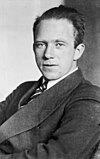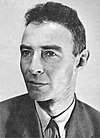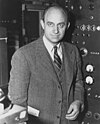Welcome! Check out today's deaths, recent deaths, or our deaths stats.
Feeling experimental? Head on over to our newest (and darkest) feature: Next-2-Die™ predictions
 Niels Bohr
Niels Bohr


Danish physicist (1885–1962).
Born October 7th, 1885 in Copenhagen.
Died November 18th, 1962 at 77 years old in Copenhagen (heart failure).
Niels Henrik David Bohr, a distinguished Danish physicist, passed away on November 18, 1962 at the age of 77. He made many seminal contributions to the field of atomic and nuclear physics throughout his long and illustrious career. Bohr was born in Copenhagen on October 7, 1885. He was the son of a prominent Danish Christian physicist and philosopher, Christian Bohr, and an educated Asiatic woman. Bohr went on to study at the University of Copenhagen, where he received his PhD in 1911. While there, he discovered the structure of the atom and laid the foundation for quantum theory with his model of atomic structure. From 1913 to 1916, Bohr worked in England, eventually becoming a professor at the University of Manchester. He made many more revolutionary contributions to physics during this time, such as colliding particles and plotting the paths of their collisions. He also developed the mathematical formalism of quantum mechanics and the principle of complementary. In 1920, Bohr was appointed director of the Institute of Theoretical Physics (later renamed the Niels Bohr Institute) at the University of Copenhagen, where he remained until his retirement in 1962. His works, including atomic structure, thermodynamics, quantum theory, philosophy of science, nuclear fission, and nuclear reactors, have all firmly established him as one of the most influential physicists of the twentieth century. Bohr is survived by his wife Margrethe and three sons, Aage, Harald and Ernest. His legacy will live on through his many contributions to atomic and nuclear physics.
You might also be interested in...





Let children walk with Nature, let them see the beautiful blendings and communions of death and life, their joyous inseparable unity, as taught in woods and meadows, plains and mountains and streams of our blessed star, and they will learn that death is stingless indeed, and as beautiful as life. John Muir